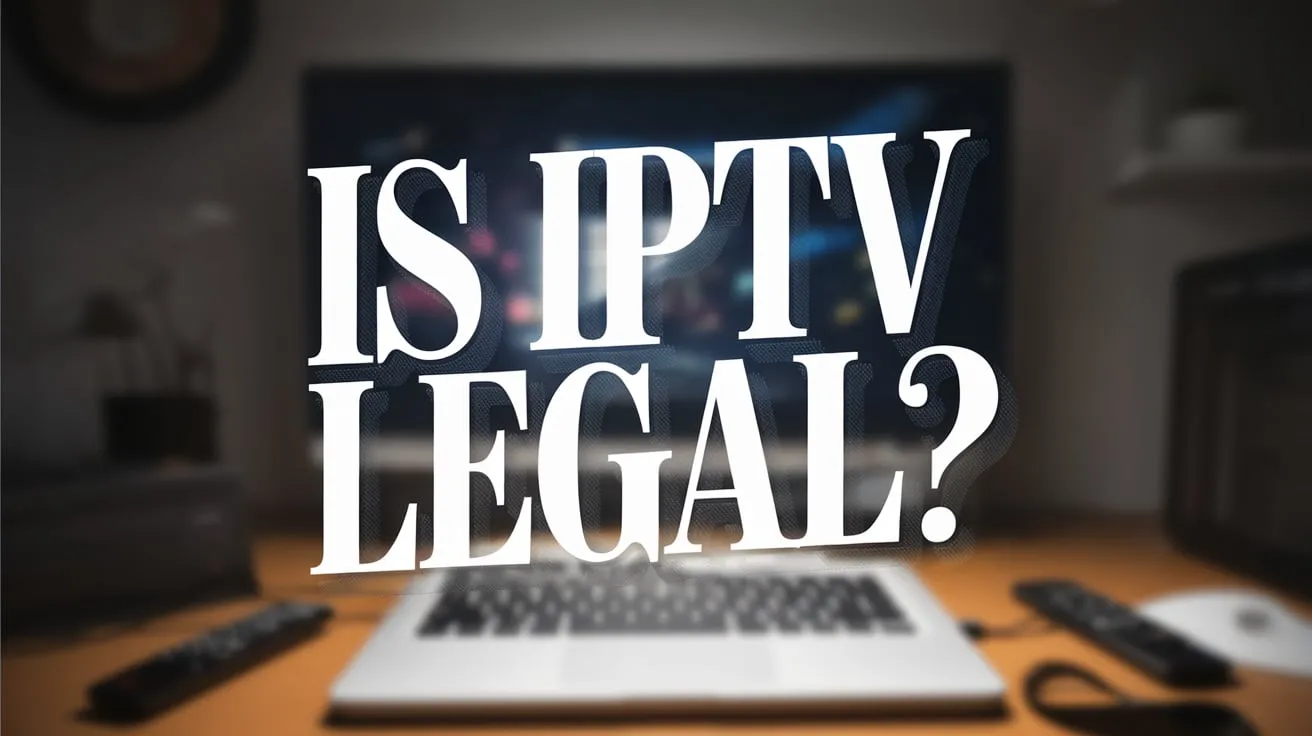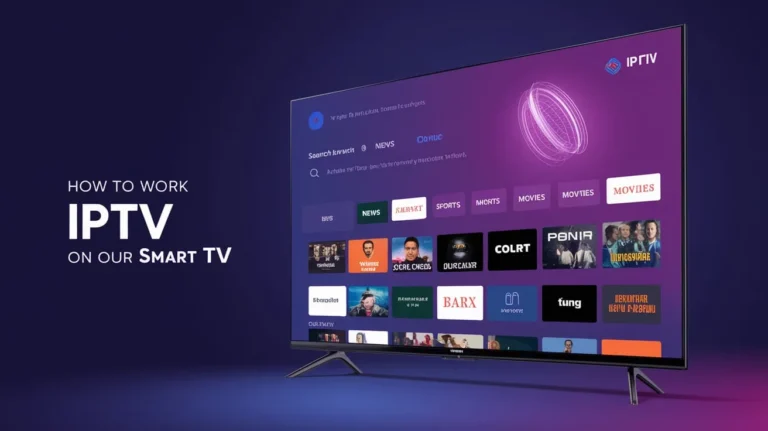Is IPTV Legal?
IPTV (Internet Protocol Television) is legal and provides a convenient way to stream content over the internet. Many popular providers, such as Hulu, Sling TV, and YouTube TV, operate legally by obtaining licenses for their shows, movies, and channels. These services use IPTV technology to deliver content, offering an alternative to traditional cable or satellite. If you’re wondering, “Is IPTV legal?” the answer is yes, as long as you choose licensed providers.
However, the legality of IPTV depends on the provider’s compliance with copyright laws. Some unverified IPTV services distribute content without permission, including premium channels or recent movies, which makes these offerings illegal. This can lead to legal consequences, especially if these services broadcast copyrighted content without securing rights.
For a worry-free experience, stick with recognized, licensed IPTV providers. These platforms ensure that all content complies with copyright laws, allowing you to enjoy your favorite shows and channels without legal concerns.
Understanding IPTV
In today’s fast-paced, digitally-driven world, IPTV (Internet Protocol Television) offers an amazing new way to experience television. Unlike traditional cable or satellite, IPTV delivers your favorite shows and channels directly over the internet. Whether you’re at home or on the go, IPTV gives you the freedom to stream live TV, catch up on demand, or explore an extensive library of movies and series on any device—from smart TVs to smartphones.
Why IPTV is Gaining Popularity?
One of IPTV’s most thrilling aspects is its flexibility. You’re no longer tied to a specific time or place to watch your favorite content. With IPTV, you can watch what you want, when you want, with no need for a DVR. Plus, it’s compatible with almost every device, making it the ideal choice for today’s mobile, multi-screen lifestyle.
Legal Considerations of IPTV Services
While IPTV technology itself is completely legal, it’s important to select reputable, licensed services to avoid any legal concerns. Using authorized providers ensures that you’re accessing content legitimately, supporting creators, and staying worry-free. Reliable IPTV services offer a vast range of licensed content, letting you enjoy all the benefits of IPTV safely and responsibly.
Is IPTV Legal in the UK?

IPTV, or Internet Protocol Television, allows viewers in the UK to stream TV channels online, making it an exciting alternative to traditional cable. However, questions about its legality remain a concern for many. In the UK, IPTV’s legality hinges on copyright laws and whether or not providers have the proper licenses. UK Copyright Law prohibits the distribution of copyrighted material without permission, meaning that IPTV providers offering unlicensed channels are operating illegally. However, IPTV services that acquire the necessary permissions to broadcast are legal and adhere to UK laws.
The Impact of the Digital Economy Act
In 2017, the UK strengthened its stance on copyright protection by introducing the Digital Economy Act, which imposes stricter penalties on illegal streaming. Individuals and providers found guilty of infringing copyright can face fines and even prison sentences. Recently, UK authorities have actively pursued legal action against illegal IPTV operations. For instance, in March 2023, several arrests were made in a nationwide crackdown on unauthorized streaming, underscoring the UK’s commitment to enforcing copyright laws in digital media.
Stay Informed and Choose Legal IPTV Providers
For UK viewers, the key to enjoying IPTV legally is to choose reputable providers with the necessary broadcasting licenses. Legal IPTV services offer a fantastic way to stream content while respecting copyright laws and supporting creators. By opting for trusted providers, viewers can enjoy all the benefits of IPTV without any legal worries.
The law on illegal IPTV in the United States
In the United States, IPTV streaming legality is strictly defined by copyright regulations like the Digital Millennium Copyright Act (DMCA). This act mandates that IPTV providers must have licenses to broadcast copyrighted content. Initially, the DMCA focused on downloads, leaving streaming services in a gray area.
However, a 2020 update closed this loophole by making illegal streaming a felony under the Protecting Lawful Streaming Act, especially targeting those who operate unauthorized services. While licensed platforms such as Hulu + Live TV and YouTube TV are entirely legal, unlicensed IPTV services pose risks. Viewers can enjoy streaming worry-free by sticking to reputable providers, which ensures content is legal and fully licensed under U.S. law.
The law on illegal IPTV in Canada
In Canada, the legality of IPTV depends on whether the provider holds the proper broadcasting licenses. Licensed IPTV providers operate legally, allowing users to enjoy streaming with peace of mind. However, illegal IPTV providers that offer copyrighted content without permission run afoul of Canadian copyright laws, which involve a combination of legal measures and public awareness initiatives. Since 2015, Canada has enabled copyright holders to monitor IP addresses used for illegal streaming, often issuing warnings.
Changes in 2019 prevented copyright holders from demanding personal information or cash settlements, but viewers still face risks if using unlicensed IPTV services. For a safe and delightful experience, Canadians are encouraged to stick with legitimate IPTV providers, ensuring a legal, smooth, and enjoyable streaming journey!
IPTV and Licensing Requirements

IPTV, or Internet Protocol Television, enables live TV and on-demand content streaming via the Internet, presenting a modern twist on traditional cable. However, operating an IPTV service requires careful adherence to licensing regulations, which differ based on content type, distribution method, and geographic location. While some channels may be license-free, many live broadcasts and premium channels require formal licensing agreements. These agreements often involve complex negotiations with content creators or rights holders, who may request upfront fees or recurring royalties. By securing the necessary licenses, IPTV providers ensure they’re offering content legally, protecting both their service and viewers.
Legal compliance is crucial for IPTV providers and users alike, as unlicensed streaming can lead to significant penalties, including fines and even criminal charges in some regions. For instance, the UK mandates a TV License for streaming live broadcasts or using services like BBC iPlayer.
Providers that fail to meet these requirements risk enforcement actions, and even users may face legal issues if they access unauthorized streams. Working with legal experts can help IPTV providers navigate licensing complexities and create reliable, law-abiding services that deliver a secure and enjoyable streaming experience.
Conclusion
In summary, IPTV presents an incredible opportunity to enjoy a vast array of content, from live broadcasts to on-demand shows, all from the comfort of your devices. However, understanding the legal landscape is essential for both providers and users. Licensed IPTV services not only offer a secure and high-quality viewing experience but also protect against potential legal risks and security concerns. By choosing reputable providers and ensuring compliance, you can fully enjoy the amazing benefits of IPTV with confidence. Embracing IPTV legally means enjoying the best of digital entertainment while respecting the rights of content creators.


